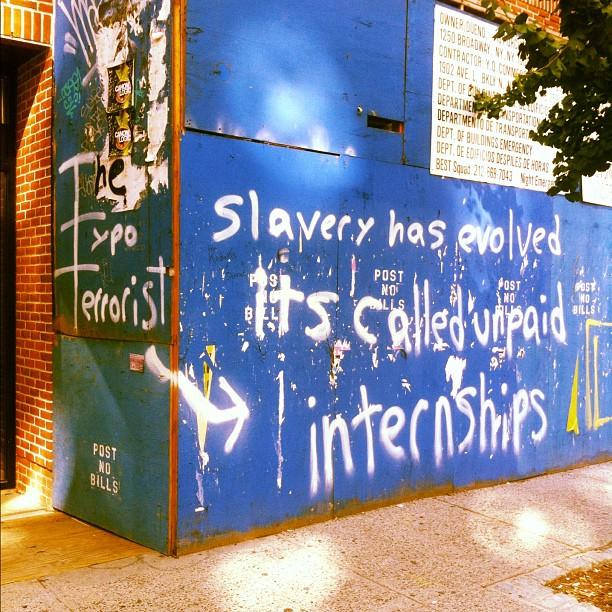The year 2013, while still not over, has seen more than its fair share of political scandals, controversies, and landmark court rulings. Issues ranging from gun policies to the legalization of gay marriage and abortions have dominated the headlines nationwide.
One issue that has also seen the inside of a courtroom — but hasn’t received nearly the amount of press coverage it deserves — is that of unpaid internships.
The issue poses an interesting conundrum which has sparked widespread debates: At what point do you draw the line between unpaid internships and indentured servitude? Are employers simply taking advantage of students who are desperate for some sort of experience in their chosen career fields or are they simply offering students ways to pad their resumes while gaining invaluable workforce experience, albeit without getting paid?
The frequency with which students in four-year universities are taking on internships is exploding — the figure jumped from 9 percent to 80 percent between 1992 and 2008 and shows no signs of slowing down.
There’s an obvious, simple explanation for this: The demand for internships outweigh the amount of internship openings available in the country. Employers in certain fields can have their pick of the brightest and most willing students, all at no cost, aside from offering the students a potential job somewhere along the line. Yet more often than not, even that promise doesn’t come to fruition.
Employers will say they’re offering something far more useful than simple money — relevant experience. Interns will learn that relevant experience doesn’t pay the bills or put food on the table — money does.
If nonprofit organizations offering unpaid internships are committing a frowned-upon but sometimes forgivable sin, then for-profit organizations that benefit from the hard labor of unpaid interns are downright preposterous.
A survey conducted by the National Association of Colleges and Employers of over 9000 graduating seniors revealed that most college students have, at one point or the other, offered free labor. Of those surveyed, 63 percent have had internships, whether paid or unpaid. 47 percent of those internships have been unpaid.
There’s a silver lining, though. The data from the survey went on to suggest that students who benefited from paid internships had a slightly lower chance of landing full time positions than unpaid interns. Unfortunately, even that silver lining had its drawback — the starting median salary for fresh college graduates with paid internship experience is $51,930.
Graduates with only unpaid internship experience net only a median starting salary of $35,721 — and that lower salary for the one-unpaid interns persists across all academic majors.
With the ruling of a New York judge going against Foxlight Search — the judge decreeing that Fox Searchlight Pictures had violated federal and New York minimum wage laws by not paying production interns — things might be taking a turn. The question is whether or not it’s actually a turn for the better, like most are inclined to believe.
The employment market, like every other market with rational consumers, follows the basic principle of demand and supply; the more expensive a good or service, the less the demand for the said good or service. The ramifications of making unpaid internships illegal could almost certainly include the disappearance of thousands of jobs from the already sparse job market.
Surely, it’s no coincidence that the rapid spike in unpaid internships happened right after the economic meltdown of ‘07/08. Even though the nation is slowly climbing out of that recession, consumer confidence is still very low, which in turn means less availability of jobs.
If unpaid internships are ruled unconstitutional on a national level, it could mean that thousands of students who might have been willing to work solely for the potential knowledge to be gained will not get the opportunity to do so.
It would also mean that the strategic exploitation of interns through unpaid labor will come to end.
It truly is an intriguing conundrum.





















































